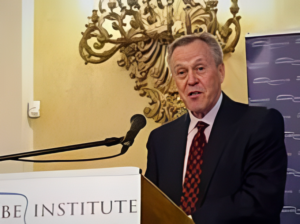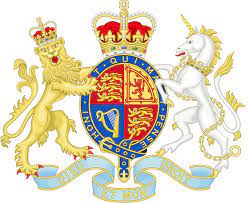
The University of Oxford alumnus Professor Roger Delves shares insights into how leaders can win through better self-awareness. He also explains why executives should attend TEXEM UK’s forthcoming programme on Self-awareness for better management of change in Uncertain times.
Delves himself, Professor Paul Griffith, Ambassador Charles Crawford, and Professor Randall Peterson will help deliver the live sessions of this programme, which is slated to hold virtually between February 11 and March 4
- How do you see the TEXEM February 2023 programme, ‘Self-awareness for better management of change in Uncertain times,’ impacting Leaders?
This TEXEM, UK programme is pertinent and comes at an appropriate time. There is no doubt that we live in times of enormous change. We are not the first to do so, but nevertheless, change and accompanying uncertainty are here and show no signs of departing. Therefore, leaders need to be self-aware if they are to lead with clarity and purpose. Leaders who lack this awareness will find that change and uncertainty are hard to lead through, and their followers will find such leaders unequal to the task.
- Which sectors would this programme be beneficial to?
I can’t think of sectors where change and uncertainty are not the current normal, so all sectors would benefit from this TEXEM, UK Self Awareness, for better management of change management development opportunities.
- Do you have any doubts about the result of this programme, given that it’s an entirely virtual programme?
Developing leaders and managers in a virtual environment has developed with astonishing speed over the three years since we first felt the bite of COVID-19. Lecturers are better versed in gaining and maintaining attention, while the participants are now far more used to meeting in a virtual space. With goodwill on both sides, and a real desire to learn on the part of the participants, this learning experience will not be highly effective. Also, given TEXEM’s leader-friendly methodology that makes learning fun and impactfully, this programme will help inspire, transform and make leaders more effective.
- How would you recommend TEXEM’s forthcoming programme,’ Self-awareness for better management of change in uncertain times’, which holds between February 11 to March 4 2023, to Leaders?
I would recommend this TEXEM, UK programme as a rare opportunity for leaders and managers to immerse themselves in learning how to be better at what they do, guided by robust models that have proved their efficiency and effectiveness repeatedly in businesses around the world. Unfortunately, opportunities such as these do not present themselves often.
- Why does a mid-executive need to attend TEXEM’s programme?
I have never met a manager who could not be better at their job. Almost always, this is not because they are not trying hard; it is because they do not have the time to explore and discover the thinking and the models that will help them to be better – they are too busy to improve! But an essential programme like this, packed with proven ways to do things better, ways to approach things better, ways to think about things better, and ways to resolve things better, is exactly what all managers need to take that step up to the next performance level. They will no longer have to improve by trial and error. Instead, they can improve by embracing proven techniques, models, and approaches and, in the process, challenge assumptions.
- How could leaders achieve Self-awareness for better management of change in uncertain times?
Self-awareness is a two-step process: knowing what to do and having the discipline and the application to do it. This executive development programme will provide the first step and advise on the second step, but the provision of application and dedication, which we term self-management, must be the responsibility of each attending individual.
- Why are you best suited to deliver this executive development programme?
Following an Oxford education and a career in advertising, where I was a board director of an international agency for several years, I have been reading, writing, and leading seminars about this subject matter for over 25 years. I have taught in several top business schools worldwide, including in London, New York, San Francisco, Boston, Dubai, Lagos, Nairobi, Sydney and Melbourne, all over Europe, several parts of India and China. This has been my daily endeavour for a very long time, and I have worked with thousands and thousands of leaders and working professionals, helping them to be better leaders and managers. I relish the opportunity to do so again with this TEXEM, UK cohort.
- What is Self-awareness, and how can a leader leverage it to better manage change in uncertain times?
Self-awareness is understanding what is important about me – my values, purpose, needs, strengths, weaknesses and so on. The more self-aware I am, the more confident I am, the more sure-footed I am around decision-making, and the more likely I am to be able to tell others what I stand for, offering them expectations of behaviour around concepts like personal integrity, for example, which are very important to followers or team members. For more information, please sign up for the TEXEM, UK programme at https://texem.co.uk/self-awareness-for-better-management-of-change-in-uncertain-times/
- Can Self-awareness be taught or enhanced?
Anyone who is eager to learn can be taught how to become more self-aware. Think of it like a muscle that, when exercised, becomes stronger and stronger, more and more reliable, and capable of more and more demanding tasks. For more information about how to be more self-aware, please email [email protected] or register for this programme at https://texem.co.uk/self-awareness-for-better-management-of-change-in-uncertain-times/






